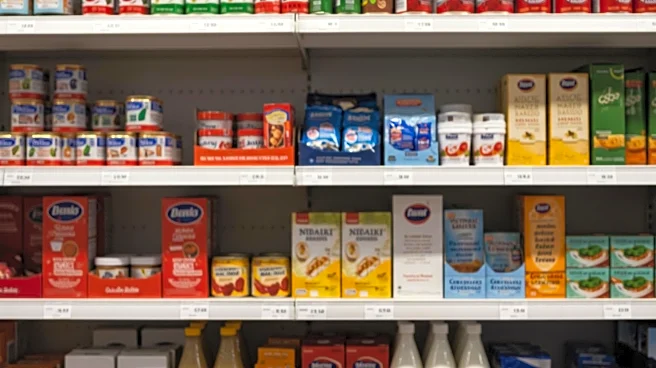What's Happening?
Private label brands in the U.S. grocery market have experienced significant growth, with dollar sales rising 4.4% and unit sales increasing 0.4% for the first half of the year, according to the Private Label Manufacturers Association. This growth outpaces national brands, which saw a 1.1% increase in dollar sales and a 0.6% decrease in unit sales. Private label brands have reached all-time highs in market share, with dollar market share at 21.2% and unit market share at 23.2%. The trend is driven by consumer perception of private label quality matching or surpassing national brands, as well as retailer trust and pricing flexibility.
Why It's Important?
The rise of private label brands represents a shift in consumer behavior and market dynamics, challenging the dominance of national brands. Retailers benefit from higher margins and increased customer loyalty, while consumers enjoy premium quality at lower prices. This trend could lead to significant changes in the grocery industry, with national brands needing to innovate and adapt to maintain their market position. The growing acceptance of private label brands among younger consumers, such as Gen Z and Millennials, further underscores the potential for long-term impact.
What's Next?
As private label brands continue to gain ground, national brands may need to focus on innovation and unique offerings that are difficult for retailers to replicate. Retailers are likely to expand their private label lines, leveraging data-driven insights to meet consumer demands. Economic shifts and consumer confidence will play a role in the future trajectory of private label growth, with potential challenges in maintaining momentum if discretionary spending rebounds.
Beyond the Headlines
The success of private label brands highlights the importance of sustainability and transparency in consumer choices. Retailers are increasingly aligning their private label products with high standards in these areas, which could influence broader industry practices. The trend also reflects a cultural shift towards valuing quality and ethics over brand loyalty, particularly among younger consumers.









